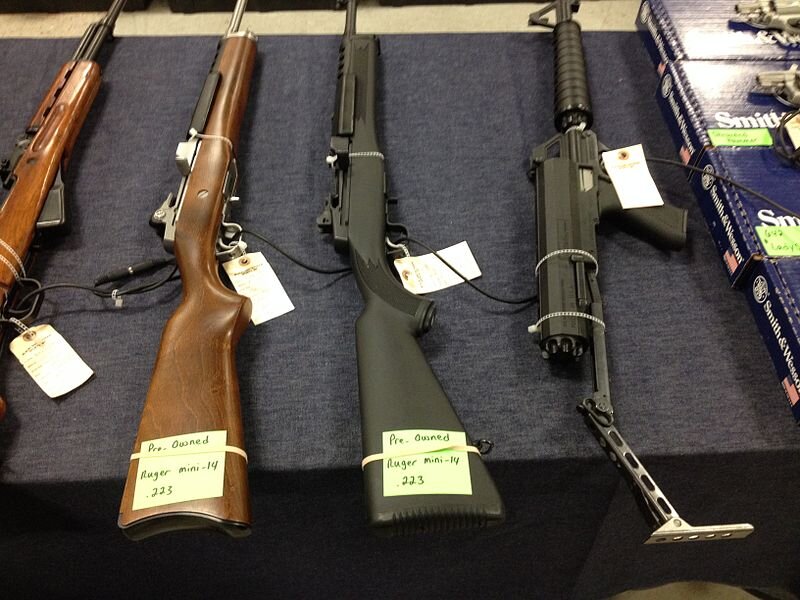Brazilian Arms Dealer Recaptured
Barbieri smuggled several batches of rifles into Brazil, similar to the ones shown here. (Wikipedia Commons).
Brazilian police arrested João Filipe Barbieri, one of the world’s most notorious arms traffickers, on Wednesday morning. This arrest marked Barbieri’s second capture—he had previously escaped from prison five months ago.
Barbieri forged a release permit and walked out of the front doors of the high-security Gericinó Penitentiary Complex on November 18, 2020. The permit was supposedly issued by the Federal Court, and the Gericinó guards did not sufficiently inspect the document, leading to Barbieri’s facile escape.
Barbieri was serving a 27-year sentence for international arms trafficking before breaking out of the Gericinó complex three years into his prison term. Brazilian police only discovered that the release permit was counterfeit four months after Barbieri had escaped.
The Interstate Police Capture Division and Penitentiary System Intelligence Superintendence recaptured Barbieri in Piratininga, Niterói of Greater Rio de Janeiro. Barbieri was hiding in a house in the Niterói favelas, or slums. Less than a month before, he returned to Rio after running out of money in three other Brazilian states where he had been staying.
Barbieri was initially arrested in 2017 after he and his gang sent thousands of rifles from Miami to Rio de Janeiro/Galeão International Airport. The rifles were hidden in pool heaters, a strategy that previously armed many gang leaders in Rio’s favelas with illegal guns.
João Filipe Barbieri is the stepson of Frederick Barbieri, colloquially known as the “Lord of Weapons.” Frederick Barbieri is currently serving a 13-year sentence in the United States after his capture in the aforementioned Miami-Rio smuggling operation. He confessed to transporting more than 1,000 rifles into Brazil from 2014 to 2017.
Over the past several years, gang violence has been rampant in Brazil’s favelas. Organized crime holds more authority in the country’s cities than police and other law enforcement. Rather than fighting recent crime surges with legal methods, Brazilian President Jair Bolsonaro ran his 2018 campaign on an escalation of violence against the gangs.
Bolsonaro encouraged every person in Brazil to own a firearm, increasing the gun ownership rate to one in every 200 people in Brazil, an astonishing figure considering how few animals can legally be hunted in the country. The last year subsequently became one of Brazil’s most violent years, with almost 44,000 gun deaths—nearly a 2,000 death increase from 2019.
Bolsonaro is increasingly perplexed as to how to deal with the extensive violence—likely the country’s largest issue. In 2020, rather than advancing the city of Rio’s nonviolent tactic of providing public services in its favelas to reduce violent crime, Bolsonaro continues to pursue violent strategies, such as proposing that law enforcement not be prosecuted for killing a suspect.

